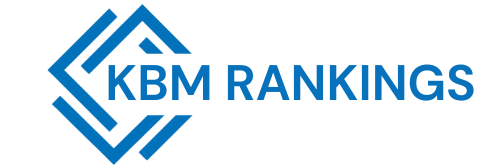In the job market, businesses are constantly looking for effective ways to attract top talent. Referral hiring, where current employees recommend candidates for open positions, has been shown to result in hires that are not only more qualified but also a better cultural fit for the company. By leveraging the network of your existing team members, referral hiring can lead to improved retention, higher morale, and a more cohesive work environment.
1. Better Cultural Fit
One of the most significant advantages of referral hiring is that it increases the chances of hiring someone who aligns with your company’s culture. Current employees understand the dynamics, values, and work environment that make your business unique. When they refer candidates, they’re more likely to recommend individuals who they believe will fit in well with the team and embrace the company’s core values. This can lead to a smoother onboarding process and a more harmonious workplace.
2. Higher Retention Rates
Employees hired through referrals are statistically more likely to stay with the company longer. This is because the people doing the referral are often familiar with the job requirements and have a strong understanding of what makes a successful employee in your organization. As a result, they tend to recommend candidates who are a better fit for the role and the company, which reduces the likelihood of early turnover. Hire by referral in Alberta often feel more confident in their new job, knowing they’ve been recommended by someone they trust, which can lead to longer tenure and lower recruitment costs over time.
3. Improved Employee Morale
Referral hiring doesn’t just benefit the new hire—it also has a positive impact on current employees. When staff members are involved in the hiring process, it can boost their sense of ownership and engagement in the company’s success. Plus, hiring candidates who are referred by employees can create a more collaborative and supportive work environment, as those new hires already have a connection within the team. This often leads to better morale, stronger working relationships, and a more positive company culture.
4. Faster and More Cost-Effective Hiring
Referral hiring tends to be a faster process compared to traditional recruitment methods. Since referrals come from your existing team members, there’s already a level of trust and familiarity with the candidate, which reduces the time spent screening and interviewing applicants. Additionally, referral hires often require less training, as they’ve already been pre-vetted by people who understand the job requirements. This can significantly cut down on recruitment costs, both in terms of time and money, allowing your HR team to focus on other important tasks.
5. Access to a Broader Talent Pool
When employees refer candidates, they are essentially tapping into their own network of professionals. This expands the talent pool and gives you access to individuals who may not have applied through traditional job postings or recruiting channels. Referral hiring can be especially effective in industries or positions where talent is in high demand, as employees often know others in the same field with similar skills and experience.
6. A Competitive Advantage
In today’s competitive job market, businesses that rely on referral hiring often have an edge over those that rely solely on job boards or recruitment agencies. Candidates referred by employees are more likely to stay longer, be productive sooner, and contribute to a positive work environment. This gives your business a competitive advantage not only in attracting top talent but in retaining it. Referral hiring is also a great way to build a strong employer brand, as it shows that your employees are proud of their workplace and willing to recommend it to others.
Conclusion
Referral hiring is more than just a recruitment strategy—it’s a tool that can shape the future of your business. By focusing on internal recommendations, you can hire candidates who are a better fit for your company’s culture, reduce turnover, and foster a more positive and collaborative work environment. Plus, it’s a cost-effective and efficient way to find top talent while boosting employee morale and engagement. As you continue to grow your business, consider making referral hiring a cornerstone of your recruitment process, and watch as it helps your team thrive.
FAQs:
1. How do I encourage employees to refer candidates for open positions?
To encourage referrals, offer incentives such as bonuses, recognition programs, or even raffles for employees who refer successful candidates. Communicate the value of referrals clearly and ensure employees know the benefits of referring individuals who are a good cultural and professional fit.
2. How does referral hiring impact the quality of candidates?
Referral hiring tends to lead to higher-quality candidates, as employees only recommend individuals they believe will succeed in the role. They are more likely to vet candidates thoroughly and share insight into their potential performance and cultural fit.
3. What are the potential drawbacks of referral hiring?
While referral hiring is often effective, one drawback can be a lack of diversity. If employees refer individuals from similar backgrounds or networks, this can limit the diversity of applicants. It’s important to balance referrals with other recruitment methods to ensure a wide range of candidates.
4. Can referral hiring save money for my business?
Yes, referral hiring can save money by reducing recruitment agency fees, advertising costs, and the time spent on interviews and background checks. Referral candidates often require less training and onboarding, leading to faster integration into the team and increased productivity.




